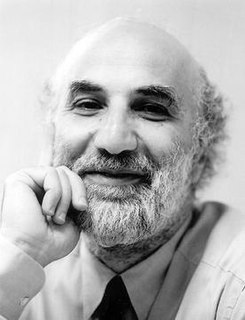Top 74 Insurgency Quotes & Sayings - Page 2
Explore popular Insurgency quotes.
Last updated on April 21, 2025.
And that is that they went about systematically understanding how to disrupt and change a person's entire processes. And these Taliban - I'm not trying to say the Republican Party is the Taliban - no, that's not what we're saying. I'm saying an example of how you go about [sic] is to change a person from their messaging to their operations to their frontline message. And we need to understand that insurgency may be required when the other side, the House leadership, does not follow the same commands, which we entered the game with.
Poetry is difficult, I mean interesting poetry, not confessional babble or emotive propaganda. Reading a new poet is discovering an entire world, what Stevens called a 'mundo' and it takes a lot of time to orientate oneself in such a world. What we have to learn to do then, as teachers and militants of a poetic insurgency, is to encourage people to learn to love the difficulty of poetry. I simply do not understand much of the poetry that I love.
I think a lot of the people who feel out of step with contemporary society or feel that they've been left back economically or feel disaffected and are drawn to the Republican Party, they are looking for a news source that will tell them something they would like to hear and then is reassuring, emotionally rewarding, and confirming. And affirming to them. So to deliver that product is pretty valuable. It's kind of like they're an insurgency and they're not getting what they need to hear from the mainstream.
The US is often the first to call for transparency and integrity in the reporting of other governments. It has never provided transparency or integrity in its reporting on the war in Iraq. It has downplayed the growth of the insurgency and other civil conflicts. It exaggerated progress in the development of Iraqi forces, and has reported meaningless macroecomic figures claiming 'progress' in the face of steadily deteriorating economic conditions for most Iraqis outside the Kurdish security zone, and does so in the face of almost incredible incompetence by USAID and the Corps of Engineers.
Baghdad fell on April 9, 2003, Hussein and his regime were brought down, we declared "Mission Accomplished" and celebrated victory . . . and chaos erupted. We did not assert control and authority over the country, especially Baghdad. We did not bring with us the capacity to impose our will. We did not take charge. And Iraq did not in a few weeks magically transform itself into a stable nation with democratic leaders. Instead a raging insurgency engulfed the country.
By the end of 2008, clearly, the al Qaeda and Sunni insurgency had been relatively stabilized. And in the al Qaeda's mind, they were defeated. They actually said that in many of their transmissions that we were able to pick up. And the Shia militia, largely those trained by the Iranians in Basra and also in Sadr City, had been defeated.
We'd be better off if the whole purpose of the adventure in Iraq was, say, to protect Israel or to protect the flow of oil to America and keep it at a reasonable price and try to get some more control. If it was about oil, going into Iraq, I guess, could have made sense. But at a certain point, when the insurgency began and we were in real trouble, there would have been some awareness that we were going to jeopardize the oil.
The public's continuing ambivalence about cultural matters is all the more striking given that the political conversation on these issues has for 30 years been dominated by an aggressive, radical right-wing insurgency that has achieved an influence far out of proportion to its numbers. Its potent secret weapon has been the guilt and anxiety about desire that inform the character of Americans regardless of ideology; appealing to those largely unconscious emotions, the right has disarmed, intimidated, paralyzed its opposition.
Insurgencies are easy to make and hard to stop. Only a few ingredients need to combine to create an insurgency; like oxygen and fire, they're very common and mix all too often. The recipe is, simply, a legitimate grievance against a state, a state that refuses to compromise, a quorum of angry people, and access to weapons.
There's just no question that the United States was trying desperately to prevent the independence of South Vietnam and to prevent a political settlement inside South Vietnam. And in fact it went to war precisely to prevent that. It finally bombed the North in 1965 with the purpose of trying to get the North to use its influence to call off the insurgency in the South.
There was a belief after World War I that painting could be an act of civil revolt. I want this exhibition, 'New Museum,' to be an act of civil disobedience. It's not so much about the New Museum on the Bowery, but the idea of challenging museums as projections of cultural authority. It's painting as insurgency.
These others -- the overwhelming majority of Iraq's people -- have repeatedly given every indication of valuing their newfound freedom: voting in two elections at the risk of their lives, preparing for a third, writing and ratifying a constitution granting more freedoms than exist in any country in the entire Arab Middle East. The secret is out, There is something decent unfolding in Iraq. It's unfolding in the shadow of a terrible insurgency, but a society is finding its way to constitutional politics.
Constraint theory argues a number of things. First, that the impossible has to be identified. Second, that the actor is then constrained by circumstances to act a certain way. For example, should we invade ISIS? Can we invade ISIS? What would it take to invade ISIS? Once you ask that question you discover the price of that option and then you take a look at American politics and see that the country is probably not prepared to invest the 2 to 3 million people that it would take to defeat ISIS and the insurgency afterwards. All right, so that's not going to happen.













